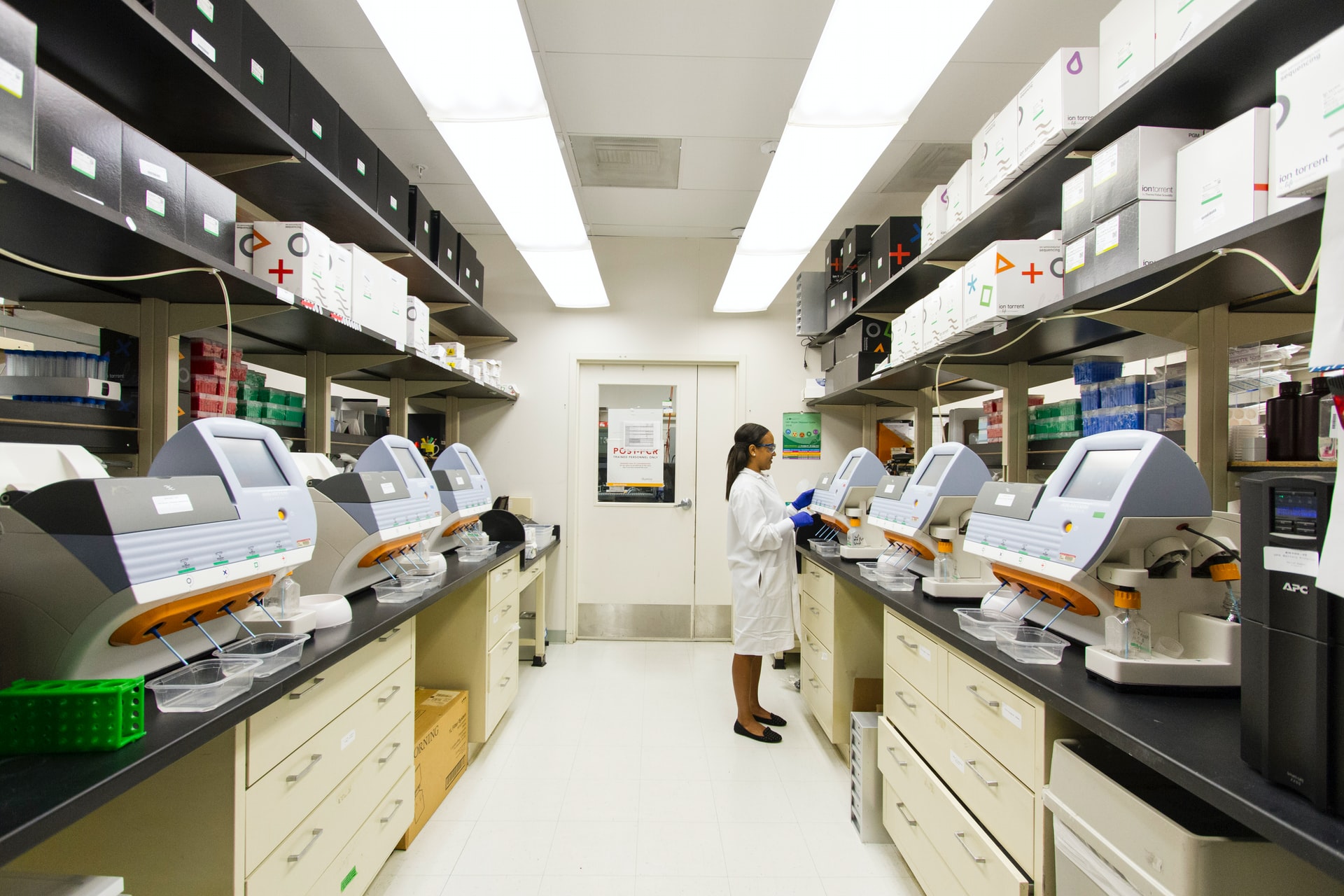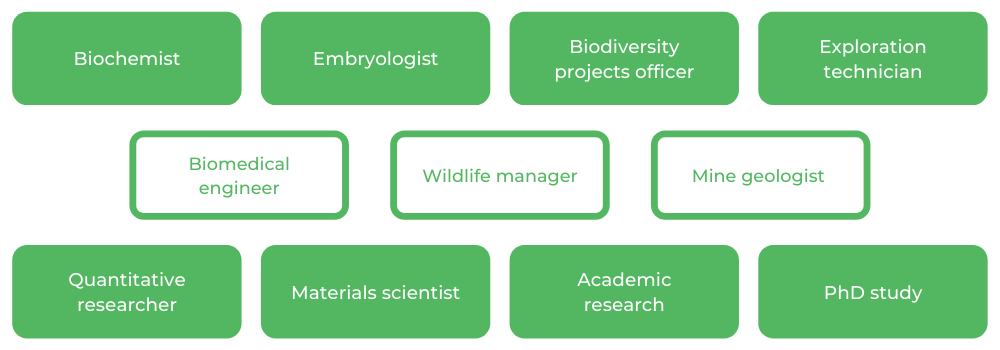
You know about the ins and outs of this degree, but what is studying a Bachelor of Advanced Science (Honours) at UQ really like? What exactly are the good and bad aspects of it?
We chatted to a student who has been through this course to understand exactly what he loved about it!
It’s important to remember that each student will have a slightly different experience, but we hope this article really helps you to figure out your dream degree.
Without further ado, let’s get into it!
Why should you study an Advanced Science degree at UQ?
Top 3 Pros of an Advanced Science Degree
Top 3 Cons of an Advanced Science Degree
Mistakes You Shouldn’t Make
Things to Know Before Starting UQ Advanced Science
What Makes this Degree Different
Motivations for Studying UQ Advanced Science
Potential Career Paths
Why should you study an Advanced Science degree at UQ?
In this degree, you’ll get to work with professional researchers right away! Germain spoke fondly of his opportunities to delve into physics concepts with academics who really know their stuff.

“[This degree] is very specialised — you’ll get a broad and deep education,” Germain said of his many elective units and Physics specialisation.
Top 3 Pros of an Advanced Science degree
#1: Built-in Honours
This one speaks for itself. As this degree has an Honours year included, you won’t have to apply part way through your study. This system can take the stress of students and allow you to find your niche early on.
It will also improve “the depth of specialist knowledge that you get,” Germain said.
Basically, if you start on an Honours path from the get-go, you know that you will be engaging in research-based activities and specialisation, without the added stress of applications, grade point averages and the rest. This is great news if you’re keen on a career in academic research!
#2: Increased knowledge
To build on the first pro, this degree provides you with so much scientific knowledge!
When you choose your specialisation (very similar to a major) in second year, you’ll get to study roughly eight subjects that are created just for that area of study.
In a Physics specialisation you will learn about topics like thermodynamics & condensed matter, quantum mechanics and statistical maths. Your final year Honours work will go even deeper into an area of your choosing.
On top of this, students can select electives that complement their specialisations.
“Given the amount of specialisations you choose from, you really get a more advanced education… than in other degrees,” Germain said.
If you’re ready for a deep dive, this could be your degree!
#3: Work with professional researchers
“You get a lot of experience… in academia and research even in your first year. [You work] with academics,” Germain explained.
In a Bachelor of Advanced Science (Honours), you are taught to be a great researcher. You’ll ask probing questions, be attentive to studies and even conduct your own investigations.
And there’s some really top-tier academics at UQ, including the likes of Andrew White (quantum physics) and Tamara Davis (astrophysics).
Germain explained that working with professionals is a great privilege. They know so much in their field, and you will get to grow your own knowledge by working collaboratively.
This is unusual in first year — in most degrees, you would wait until third year or even Honours to undertake professional investigative research.
Top 3 Cons of an Advanced Science degree
Germain had a harder time coming up with cons, suggesting this is a great degree option! However, here are three things to be wary of when entering a Bachelor of Advanced Science (Honours) at UQ.
#1: Too specialised
Alas, such a specialised, research-specific degree may have its drawbacks! Germain explained that there’s “not a long of room to try different things.”
This is because in a Bachelor of Advanced Science (Honours), you get into the bulk of your specialisation study early. You will have some electives, but by the time you complete your general Science units in first year and the compulsory specialisation units from second year, you will have completed over half your course.
This is a degree that requires you to know exactly what you want to study early on in your academic journey.
It should be noted that the degree is now slightly more flexible than when Germain began — thanks UQ for the foresight!
#2: It may not be necessary
Germain explained that because this course is very research-heavy and is a year longer than a normal Bachelor of Science, it may not be the best option for everyone.
He believes that any Science student can get a lot out of an Advanced degree. However, “if you’re not planning to continue in a career in the academic specialisation you’ve chosen … it may not be more useful than a Bachelor of Science.”
Figuring out exactly what degree you’d like to do can be a tricky business. In short, if you’re keen to go straight into field work, teaching or a broad science degree, taking on the Bachelor of Advanced Science (Honours) may be an unnecessary stress and extra year to your study. It’s a great degree, though, for anyone interested in research and academia.
The Bachelor of Science and Bachelor of Advanced Science (Honours) at UQ are both two good options from the same fields. It’s all about reading through information on both degrees and figuring out which one suits you best!
#3: That’s all, folks!
Germain didn’t have any other cons to share with us. That’s a pretty stellar review, don’t you think?
Just remember that everyone has different study experience, so Germain may love something that you hate and vice versa. However, we think this is definitely a degree worth considering if you’re science minded!
Any regrets?
“Personally, I regret just taking the required maths courses I needed to take. I wish I’d spent more of my electives taking more in depth maths courses.”
This goes to show that your electives are really important in improving your overall study experience. Germain suggested that students should choose electives that they enjoy, but also that will help them learn to their fullest potential.
He also regrets “taking it a bit too easy in first and second year.” Germain feels he could have really made the most of having amazing academics around him from the very start of his degree. Start networking early!
What do you wish you had known before starting Advanced Science at UQ?
“I probably would have wished I knew how lucky I was in being able to work with professional researchers very early on in my degree. I probably took it for granted at the start,” Germain said.
As a final year student excelling in his field (we said that, not him), Germain now realises how instrumental the staff at UQ have been in his learning. He hopes all Advanced Science students realise just how fortunate they are to be working with some of Australia’s top research academics.
What makes this degree different from the ones offered at other universities?
We’ve said it before, but we’ll say it again (and probably another few times before the end of this article) — this degree gives students a profound depth of specialised knowledge.
“I would say the access to the unique academics that you get at UQ [makes this different from other degrees],” Germain said.
What inspired you to choose Advanced Science at UQ?
“I’ve always been good at maths and I had been thinking for a long time about exactly what to do with that. I always enjoyed learning about science and how things worked. It [this degree] seemed like the best way to combine those things … and find wonder in my degree.”
Germain added that he knew quite early on what he would use this degree for. “I wanted to go into research,” he said.
What are the possible career paths?

Being such a tailored degree, your career options are going to change based on your specialisation! You could end up working with animals or researching the next rocket design.
Here are some general ideas of where this degree could land you:
-
- Biochemist
- Embryologist
- Biodiversity projects officer
- Exploration technician
- Biomedical engineer
- Wildlife manager
- Mine geologist
- Quantitative researcher
- Materials scientist
- Academic research
- PhD study
Lucinda Garbutt-Young hopes to one day be writing for a big-shot newspaper… or maybe just for a friendly magazine in the arts sector. Right now, she is enjoying studying a Bachelor of Public Communication (Public Relations and Journalism) at UTS while she writes on the side. She also loves making coffees for people in her job as a barista, and loves nothing more than a sun shower.


